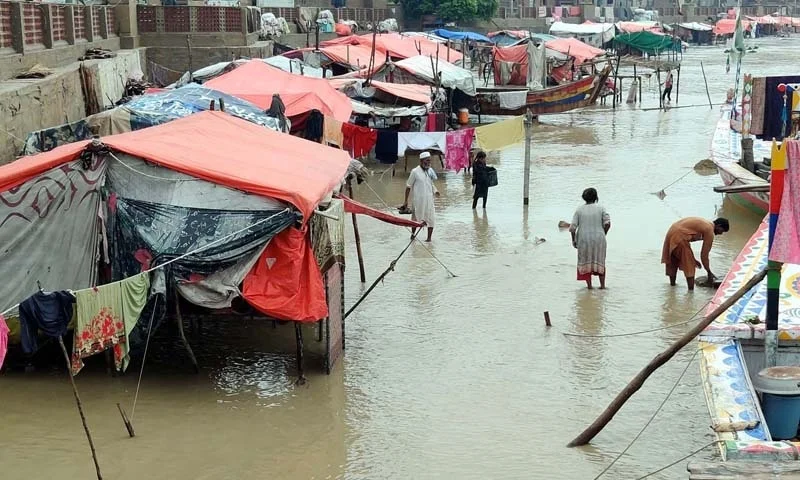Islamabad, 19 Apr, 2025: Flash Floods have once again wreaked havoc across K-P’s Rural Areas, following relentless rainfall and sudden hailstorms that pounded several districts.
The adverse weather led to overflowing streams and rivers, submerging farmland and destroying vehicles. The worst-hit areas include Charsadda, Chitral, Khyber, and Swabi, where torrential downpours triggered rapid flooding, leaving behind a trail of devastation.
In Charsadda alone, a lightning bolt left at least eight people injured, underlining the danger posed by extreme weather events.
READ MORE:
Islamabad at Risk of Flooding Despite Planned Infrastructure: UN Report
As precautionary measures intensify, the Khyber-Pakhtunkhwa Provincial Disaster Management Authority (PDMA) has issued a high alert for the Kabul River and its adjoining tributaries, warning of further flooding risks.
To manage the unfolding crisis, the PDMA has revoked weekend leave for key officials, instructing them to remain available around the clock in case the situation worsens.
According to meteorological forecasts, Flash Floods and intense rainfall may persist over the next 24 hours, especially across central and mountainous regions of Khyber-Pakhtunkhwa.
Areas such as Lower Chitral experienced severe impacts, where the surging waters damaged multiple homes, orchards, and standing crops.
Three residential structures in Koor and Brauz bore the brunt of the floods, while the Chitral-Peshawar road was rendered impassable, trapping travelers and cutting off access to medical services.
Rescue teams, assisted by local community volunteers, sprang into action to shift patients and stranded commuters to safer locations.
The National Highway Authority (NHA) also launched road clearance operations to reopen critical transportation routes.
In K-P’s Rural Areas, the storm destroyed vast stretches of farmland. Tobacco fields and other vital crops in Swabi sustained substantial losses, while hail and fierce winds shattered the windshields of several vehicles in the Khyber tribal district.
The relentless assault of nature has not only compromised food security but also hit local livelihoods, leaving farmers in distress as they assess the destruction of their seasonal yields.
As weather instability continues to rise, the provincial authorities are urging residents in flood-prone zones to remain vigilant.
Relief teams are stationed across vulnerable areas, equipped to provide assistance and relocate families at risk.
READ MORE:
Pakistan Gets Only $500M of $10B Promised for Flood Relief
These recurring climate events underscore the urgent need for stronger infrastructure, early warning systems, and sustainable flood management in Pakistan’s vulnerable regions.
Communities are now bracing for what lies ahead, hoping that timely intervention will minimize further loss.
In conclusion, Flash Floods in K-P’s Rural Areas have once again demonstrated the fragile balance between nature and human settlements.
Preparedness, resilience, and unity remain the region’s strongest assets in facing nature’s fury.









